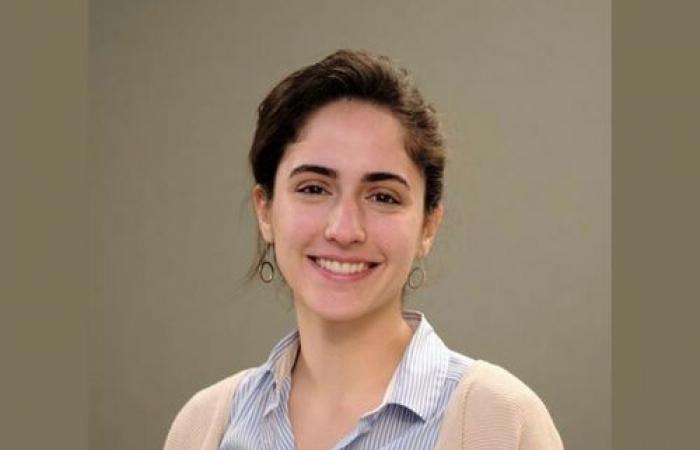Dounia Shaaban Kabakibo gets her love for science from her father. It was he who encouraged her, telescope in hand, to take an interest in the stars, the planets, and physics. And above all, “to get to the bottom of things”.
It was with him, her mother and her sister that the student left Syria to spend two years in Saudi Arabia before settling in Quebec, where she quickly learned French. Her desire to understand the world around her led her to obtain a bachelor’s degree in mathematics and physics and a master’s degree in physics at the University of Montreal.
Today, it is at the Courtois Institute and alongside Michel Côté, professor in the Department of Physics at UdeM, that she is undertaking a doctorate in the field of condensed matter.
This science studies matter whose particles are close enough together so that they interact strongly with each other to form solids, liquids and other “exotic” states. From these interactions unique behaviors are born that do not exist in the presence of a single atom or a single molecule.
And this is precisely what stimulates Dounia Shaaban Kabakibo: the search for new materials with unique properties.
Rethinking Batteries
Michel Côté
Credit: Amélie Philibert, University of Montreal
The doctoral student is working specifically on new materials that can be used in so-called solid-state batteries. Currently, battery electrolytes – the substances that allow ions to circulate – are mainly composed of liquids or gels, which makes them potentially flammable. However, Dounia Shaaban Kabakibo is interested in the potential of crystals.
“When we talk about crystal, we are talking about an arrangement of atoms which repeats itself in space periodically, as in the case of diamonds,” explains the researcher. These solid materials extend the life cycle of batteries while making them safer by reducing the risk of fire. They could also offer better energy density, allowing the design of lighter batteries.”
This type of more durable and efficient battery would have many applications in a world increasingly powered by electricity, particularly in the automotive industry. “We are not yet at the stage of producing these batteries on an industrial scale, the materials are not yet optimal, but I am convinced that we will get there,” she says.
A boost from artificial intelligence
In parallel with her work at the Courtois Institute, Dounia Shaaban Kabakibo is carrying out a research internship at Mila – the Quebec Institute of Artificial Intelligence – under the direction of Yoshua Bengio, professor in the Department of Computer Science and Operational Research at the ‘UdeM.
The student uses machine learning models to quickly test thousands of combinations of atoms to determine which ones are likely to have the best properties.
“It’s so exciting to be on the border between the world of machine learning and physics,” she enthuses. I think it’s a bit like the future of scientific research to be able to use all these tools to advance our knowledge.”
And this passion for deepening knowledge, the doctoral student intends to transpose after her studies, into the job market, whether in the private sector or that of research and teaching.
Promoting science
Dounia Shaaban Kabakibo recently obtained first place and the public prize in Mila’s first scientific communication competition thanks to her oratorical talent, her ability to popularize and her creativity. The democratization of scientific research occupies a special place in the heart of the researcher.
“In an era of misinformation, I think it’s our role as scientists to move forward and communicate the facts to people. Also, the research that we carry out is often subsidized by public funds, I find that it is important that society is informed of what is done with this money and the reasons which motivate our work”, believes- She.






